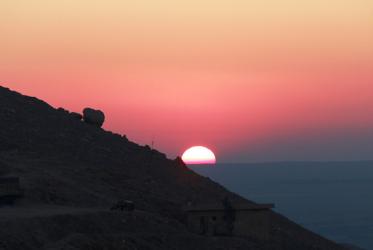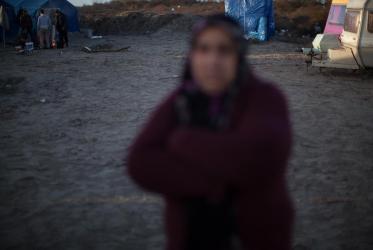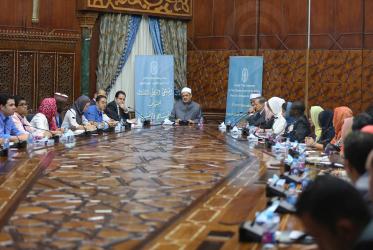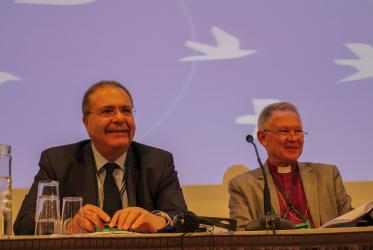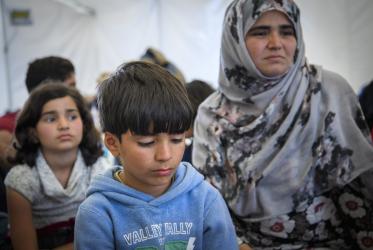Displaying 101 - 120 of 158
06 April 2017
In Lebanon, refugees face hardship - but find hope
16 March 2017
Children from Bethlehem in key role, as WCC shares Christmas message
22 December 2016
The child in the manger and the war in Syria
22 December 2016
WCC urges immediate focus on safety, security in Aleppo
05 December 2016
In Syria and Iraq, minorities must come out of the darkness
28 November 2016
Out of the darkness
28 November 2016
Owe Boersma will strive for equilibrium as EAPPI coordinator
18 August 2016
‘Unprecedented times of hopelessness’ in Holy Land
11 July 2016
Is there hope for the Middle East?
25 June 2016
Peace, health and education are Gaza's future
24 May 2016
Winners of WCC photo contest announced
09 May 2016
